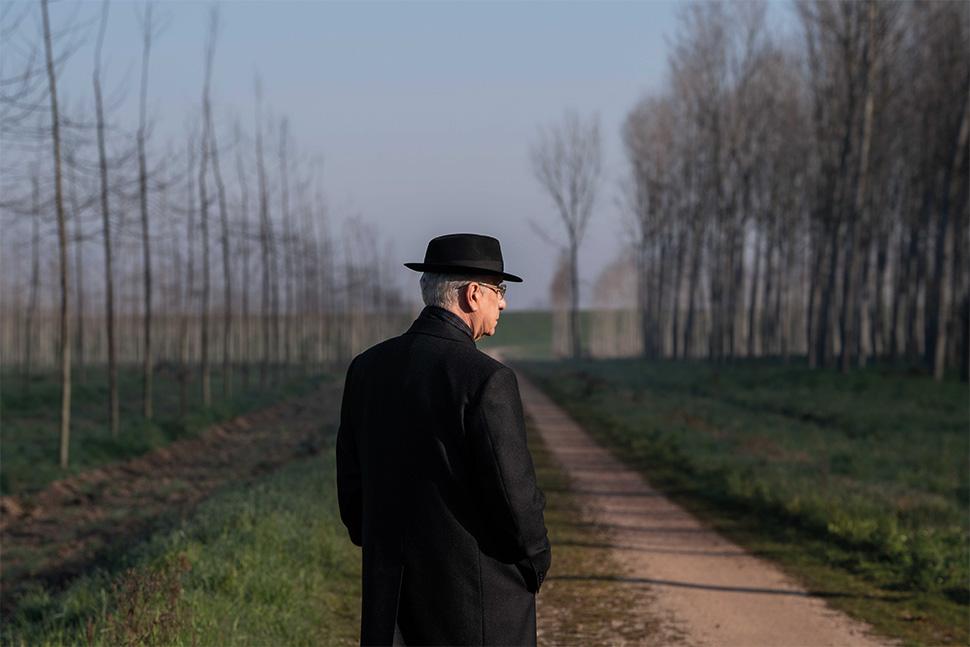La Grazia
La Grazia
VERDICT: Toni Servillo shines in a memorable, tragi-comic performance as the president of Italy in Paolo Sorrentino’s crowd-pleasing Venice opener ‘La Grazia’, an often funny, sometimes moving tale of the Numero Uno’s loneliness, inner doubts and obsessions and his inability to make up his mind on difficult legislation like euthanasia.
Doing what he knows best and mixing a critique of how Italy is governed with real affection for his country’s struggles and eccentricities, Paolo Sorrentino hits the bull’s-eye with La Grazia, an inspired comedy about the president of Italy.
Though the biggest laughs are reserved for Italian audiences who will find the characters in the film’s parallel universe instantly recognizable, the clever story is enjoyable on its own and should win the votes of festival audiences this fall. Some viewers may even find this portrait of an aging president and his struggle with his principles, doubts and moral conduct a refreshing change.
Playing a thinly disguised version of current president Sergio Mattarella, a Catholic politician from the South who has been in office since 2015, seasoned Sorrentino muse Toni Servillo shows he is capable of making even a boring, gray, mild-mannered, middle-of-the-road constitutional lawyer like this 80+-year-old sparkle with measured mischief and emotional tumult. Just watching him sneak a forbidden cigarette on the ramparts of the Quirinale Palace offers a way in to his constant soliloquies.
Far from the hedonistic pleasures of Sorrentino’s mythically-themed last film, Parthenope, which divided critics and audiences down the middle, La Grazia is firmly anchored in images and attitudes familiar to every Italian, from the aerobatic Frecci Tricolori team to the Alpini infantry corps. They will instantly identify former prime minister Mario Draghi and the widower Mattarella’s daughter and First Lady, despite the minor variations.
The film’s formal istitutional setting in the halls of power recalls the writer-director’s dark, stylized attack on the Christian Democrats and the corruption of power in Il Divo (2008), where Servillo played Giulio Andreotti. But here the characters are more realistic than in the earlier political spoof. Emphasizing the likable, human side of Pres. Mariano De Santis (Servillo), the screenplay spins out a number of themes, like the uncomfortable tension between the discipline of the law and a ruler’s sensitivity toward suffering, or the answer to the question, “Who owns our days?”
The conflict between blind justice and empathy is well-illustrated in three cases that are before the President and await his decision before his term expires in six months: a pardon for a young woman who has stabbed her brutal husband to death; a pardon for an older man who has killed his wife, who was in the final stages of Alzheimer’s; and a law that decriminalizes euthanasia. The President is a former constitutional judge and a legal expert (like his daughter and inseparable counselor, Dorotea, played straight by Anna Ferzetti), and has a regrettable tendency to procrastinate when faced with tough decisions.Tension build between father and daughter as the weeks roll by and he doesn’t sign the pardons (la grazia). As for euthanasia, the new law is political dynamite: if he doesn’t sign, he’s a torturer; if he does, he’s a murderer.
The Quirinale palace, where most of the action takes place, comes complete with its own historic stables, and it is here that the President is taken to witness the mortal agony of a favorite horse. Its handlers beg him to let them put it down, but he refuses, even though its suffering is heart-wrenching. The metaphor for euthanasia is unmistakable.
Though he’s king of the film, Servillo plays alongside a rich supporting cast, who include a Black Pope (a cool Rufin Doh Zeyenouin) sporting earrings and long salt-and-pepper rasta braids and who moves around the Vatican gardens on a motor scooter. After hearing the President’s confession he sensibly states that God give us questions to deal with, not answers. And he warns him not to sign the euthanasia law.
Another figure that seems like a projection of the President’s psyche is an astronaut who has been alone on a space station for a year and has six months more to go before he returns to Earth. Watching him float around on a monitor, and even shed a homesick tear, the President envies him his lightness. Perhaps stimulated by Dorotea to modernize his look, he starts listening to rap and even learns a song by heart – whose raunchy lyrics he bizarrely sings to himself.
What is really weighing on his mind, more than affairs of state, is the conviction that his beloved wife, who has been dead for many years, had an affair with someone 40 years ago. His suspicion falls on the minister of Justice Ugo Romani (theater actor and director Massimo Venturiello), once a childhood friend and now a dignified white-haired figure, in a series of basic comic scenes. But the only person who knows for sure, and isn’t telling, is the formidable artist Coco Valori (the wonderfully down-to-earth Milvia Marigliano), once his wife’s best friend.
Shot mostly indoors in D.P. Daria D’Antonio’s refined colors that give a feel for the old-fashioned furniture and decorations and fussy pomp that bespeak Italian historical buildings, the film shifts to the misty, clean air of northern Italy when the President and his daughter separately visit a prison housing the murderers he is asked to pardon. An ample selection of modern music is well-chosen to lighten up any visual stuffiness, and the rapper Guè Pequeno even gets a cameo onscreen.
Director, screenplay: Paolo Sorrentino
Cast: Toni Servillo, Anna Ferzetti, Orlando Cinque, Massimo Venturiello, Milvia Marigliano, Giuseppe Gaiani, Linda Messerklinger, Vasco Mirandola
Producers: Andra Scrosati, Annamaria Morelli, Paolo Sorrentino, Massimiliano Orfei, Luisa Borella, Davide Novelli
Cinematography: Daria D’Antonio
Editing: Cristiano Travaglioli
Production design: Ludovica Ferrario
Costume design: Carlo Poggioli
Sound: Emanuele Cecere, Mirko Perri
Production companies: Fremantle, The Apartment, Numero 10, PiperFilm
World Sales: The Match Factory
Venue: Venice Film Festival (Competition)
In Italian
133 minutes

